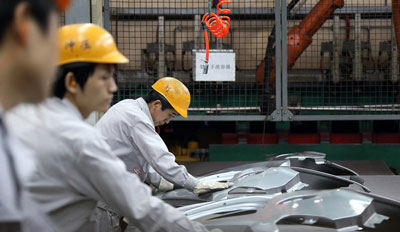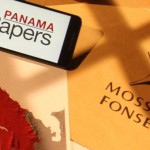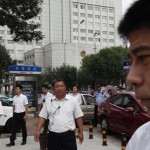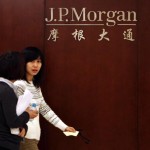No Longer Business as Usual in China

With heads of state and corporate chieftains in Beijing for a major economic summit meeting this week, China’s increasing economic nationalism is expected to be heavily debated.
China is changing the rule book for business, forcing multinational companies to figure out how to play a new game or risk losing out on the world’s second-largest economy.
When China joined the World Trade Organization 13 years ago, the government welcomed foreign companies, eager for their factories and technology. Now China is using its growing economic and financial muscle to dictate new terms, as dozens of American, European and Japanese businesses face scrutiny for corruption, monopolistic practices and, most recently, tax evasion.
The squeeze on multinationals has coincided with President Xi Jinping’s consolidation of power and his increasingly nationalistic and sometimes confrontational stance toward China’s neighbors and the West.
“If any leader wants to push for economic cooperation,” said Li Cheng, the director of the John L. Thornton China Center at the Brookings Institution, “he’s really taking a serious political risk.”
While China has long presented unique challenges for businesses, the regulatory and legal environment has been especially perilous in recent months, with authorities pushing companies to cut prices and punishing them with large fines.
Then suddenly, in the last five weeks, there has been a lull in what had been a rapid pace of punishments. The pause has been all the more abrupt because Chinese officials were putting the finishing touches on what seemed likely to be their heaviest penalties yet in the continuing crackdown on monopolistic practices.
Another possible factor in the slower pace of investigations, besides preparations for the Asia-Pacific Economic Cooperation summit meeting in the coming days, may be an important personnel change. Xu Kunlin, the head of the price supervision antimonopoly division at the National Development and Reform Commission and the leading advocate of a tough stance toward multinationals, was transferred a month ago to run the separate price regulation division, said two people who know Mr. Xu but insisted on anonymity because of the sensitivity of personnel moves.
“We have clients that are investigated by very, very rudimentary teams who have no clue what they are doing,” said an adviser to multinationals who insisted on anonymity because of the legal sensitivity of the cases. Those teams, the adviser said, nonetheless manage to accumulate large quantities of confidential corporate data, sending a shudder through the head offices of the affected multinationals.
Whether the Chinese government is focusing disproportionately on foreign companies is the subject of considerable dispute.
China also does not have clear rules on whether investigators need warrants to search offices or whether executives are entitled to lawyers, particularly foreign lawyers. So many companies have been raided that the European Union Chamber of Commerce in China has organized a conference for executives in Beijing on Nov. 21 titled, “Dawn Raids in China — How to avoid and answer a sudden knock at your door?”
China’s assertive stance has created a dilemma for the United States and other trading partners. While they are reluctant to defend companies that may have bribed officials or colluded with competitors, they are also unsettled by China’s insistence that companies cut prices for products or otherwise hamper business. The Obama administration has ended up saying little publicly even as American business leaders have fumed.
Source: NYT-No Longer Business as Usual in China





























